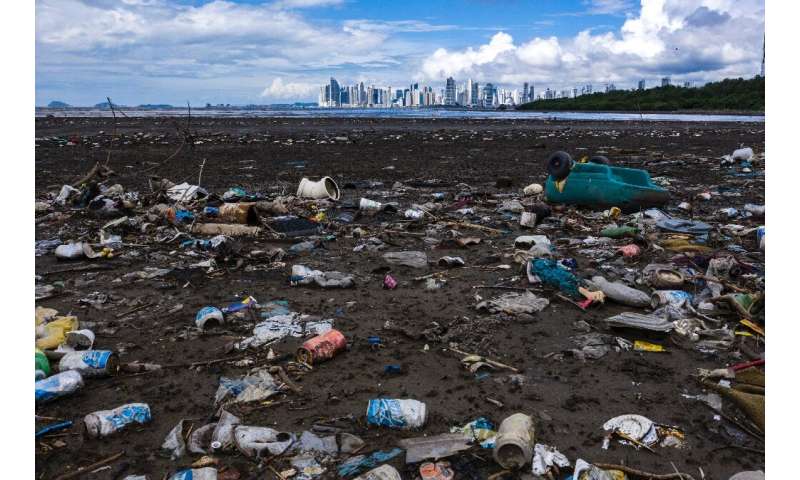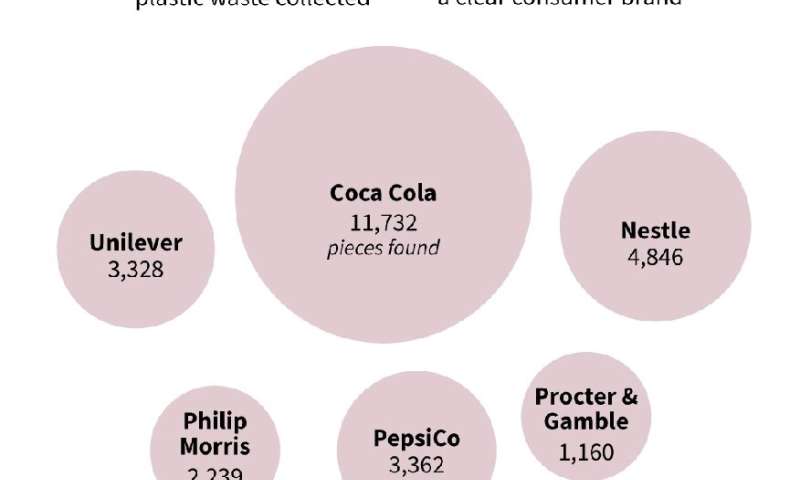When consumers want plastic, but also worry about the planet
Would the world stop drinking Coca-Cola if it no longer came in single-use plastic bottles?
They might, Coca-Cola's Chief Sustainability Officer Beatriz Perez suggested at the World Economic Forum earlier this year: Coca-Cola "won't be in business if we don't accommodate customers," she said.
But Professor Dan Vermeer, who worked in sustainability at Coca-Cola for more than seven years before joining the faculty at Duke University's Fuqua School of Business, says ascribing your company's slow change to consumer preference is a thin argument. He's also the founder of the Center for Energy, Development, and the Global Environment (EDGE) at Fuqua.
Vermeer says influential brands such as Coca-Cola actually are ideally positioned to drive shifts in consumer preferences, nudging even plastic-seeking customers to more sustainable choices, as he explains in this Fuqua Q&A.
Why should companies strive for improved sustainability if customers aren't demanding it?
Coca-Cola faces a dilemma. While it strives to become more sustainable, it is also the poster child for plastic waste. The company produces more than 100 billion plastic bottles a year and less than 10% of these bottles are recycled. Most of them end up in the world's ditches, waterways, beaches and oceans. While the company has considered shifting to glass or aluminum options over plastic, they worry that these may ultimately have a higher carbon footprint. So for now, the company says it will "show the consumer what the opportunities are," as Perez says, and rely on consumers to change gradually with them. But many consumers, especially young people, are ready for the change and increasingly are inclined to spend their money with brands that share their values for sustainability.
If customers want single-use plastic bottles or other less sustainable products, should companies deliver?
Many of the world's most successful brands—Coca-Cola among them—have succeeded because of their obsessive focus on the consumer. However, consumer preferences do not always align with society's priorities. Deferring to customers means ignoring the concerns of other stakeholders including investors, employees, governments, and communities, especially on the issue of plastic waste and the costs these other stakeholders face in cleaning it up. A consumer-first approach could ultimately threaten a company's social license to operate—all of these stakeholders influence a company's ongoing permission to do business and could disrupt the brand's ability to serve its markets.
Can brands actually change what consumers want?
Big brands such as Coca-Cola spend billions annually on marketing. They're already deeply engaged in shaping consumer behaviors. In the specific case of Coca-Cola, it seems the company is ambivalent about using that influence to lead customers to more sustainable choices. Brands can lead customers to different choices through traditional marketing efforts and even through choice editing—for example, limiting available options to more sustainable choices to shift the mainstream away from environmentally or socially damaging products.
Companies can also show their commitment to sustainability by measuring the carbon footprint of processes and products—for example, packaging waste—in their internal accounting processes, as Microsoft and others have done. This quantifies the costs companies are passing along to society, which could accelerate the adoption of plastic innovations across global industries, from new materials to improved waste management. A company with the scale and influence of Coca-Cola can rapidly shift market dynamics rather than react to them. One of EDGE's current projects is working with World Wildlife Fund and Impact Hub to facilitate big brands to invest in new materials and better waste management practices. Good alternatives are out there, but we need to accelerate their adoption.
Should companies change now before knowing what regulatory changes may be coming?
Regulation is inevitable and is advancing rapidly, especially in Europe. So for any company using single-use plastics, it's in their interest to lead on these efforts rather than follow or take a defensive approach, such as lobbying against 'bottle bills' and other regulation intended to minimize waste. In a more active regulatory environment, this defensive approach is likely to be ineffective. A proactive approach could actually give a brand more influence. The company could help write the new standards for the entire industry. Being part of the process would allow them much more significant input, and they could shape policy instead of simply reacting to it
Big firm products top worst plastic litter list: report

Tens of thousands of pieces of plastic littering the planet come from just a handful of multinational corporations, an environmental pressure group said Wednesday.
Coca-Cola, Nestle and PepsiCo were named by Break Free from Plastics, a global coalition of individuals and environmental organisations, who warned the companies largely avoid cleanup responsibility.
The coalition's volunteers collected nearly half a million pieces of plastic waste during a coordinated "World Clean Up Day" in 51 countries a month ago, of which 43 percent were marked with a clear consumer brand.
For the second year in a row, it said, Coca-Cola came out on top, with 11,732 pieces of plastic collected from 37 countries across four continents—more than the next three top global polluters combined.
"Many of them have made commitments that they claim will make their products more sustainable, but largely protect the outdated throwaway business model that got us into this mess in the first place," said the report, released in Manila.
As nations, China, Indonesia, the Philippines, Vietnam and Sri Lanka dump the most plastic into the oceans, but "the real drivers of much of this plastic pollution in Asia are actually multinational corporations headquartered in Europe and the United States", it said.
Coca-Cola, PepsiCo, and Nestle were responsible for the most pieces of plastic collected, according to the report.
Others in the top 10 polluters include Mondelez International, Unilever, Mars, P&G, Colgate-Palmolive, Philip Morris and Perfetti Van Mille, it added.
Single-serve sachets
While global consumer brands now acknowledge their role in perpetuating the crisis, the report said they "have been equally aggressive in promoting false solutions to address the problem".
Promoting recycling is their way of shifting responsibility to consumers, it said.
Just nine percent of all plastic produced since the 1950s has actually been recycled, the report said.
The report deems single-serve multilayered sachets, common in Southeast Asia and aimed at low-income families that cannot afford bigger volumes of consumer products, as "the most damaging type of plastic packaging".

Coca-Cola's promotion of a single-use bottle using plastic collected from the oceans, as well as PepsiCo's efforts to promote recycling, "do not get to the heart of the problem and all but guarantee the plastic pollution crisis will grow worse".
Nestle sells over a billion products a day in single-use packaging "but has no clear plans for reducing the total amount" it puts into the world, the report alleged.
The firm said it was working towards solutions "to make reports like this a thing of the past".
"As the world's largest food and beverage company, we know we have an important role to play in shaping sustainable solutions to tackle the issue of plastics waste," a Nestle spokesperson told AFP in a statement.
"It is completely unacceptable for this (plastic) packaging to end up as litter in the environment and we are working hard to make all of our packaging either recyclable or reusable by 2025."
The report said companies should veer away from promoting "false solutions"—such as recycling and so-called "bioplastics"—and instead transition from a throwaway economy.
All the companies named have made public commitments to reduce plastic waste and increase recycling.
Coca-Cola and PepsiCo—like Nestle—have pledged to make their packaging recyclable, reusable or compostable by 2025. The beverage giants have also pulled out of a US lobbying organisation that represents the plastics industry.
"Changing the way society makes, uses, and disposes of packaging is a complex challenge and we're playing our part," a PepsiCo spokesperson told AFP.
"We want to help build a system where plastic packaging never becomes waste."
The Coca-Cola Company said it was working to help stop plastic waste entering the seas, describing it as a "critical global issue".
"Any time our packaging ends up in our oceans—or anywhere that it doesn't belong—is unacceptable to us," the firm said in a statement.
Break Free from Plastics counts 6,118 individuals and 1,475 organisations around the world as its members, including Greenpeace.

No comments:
Post a Comment